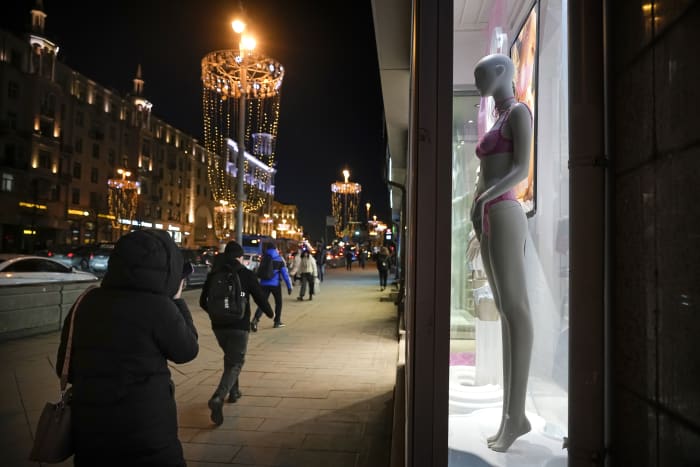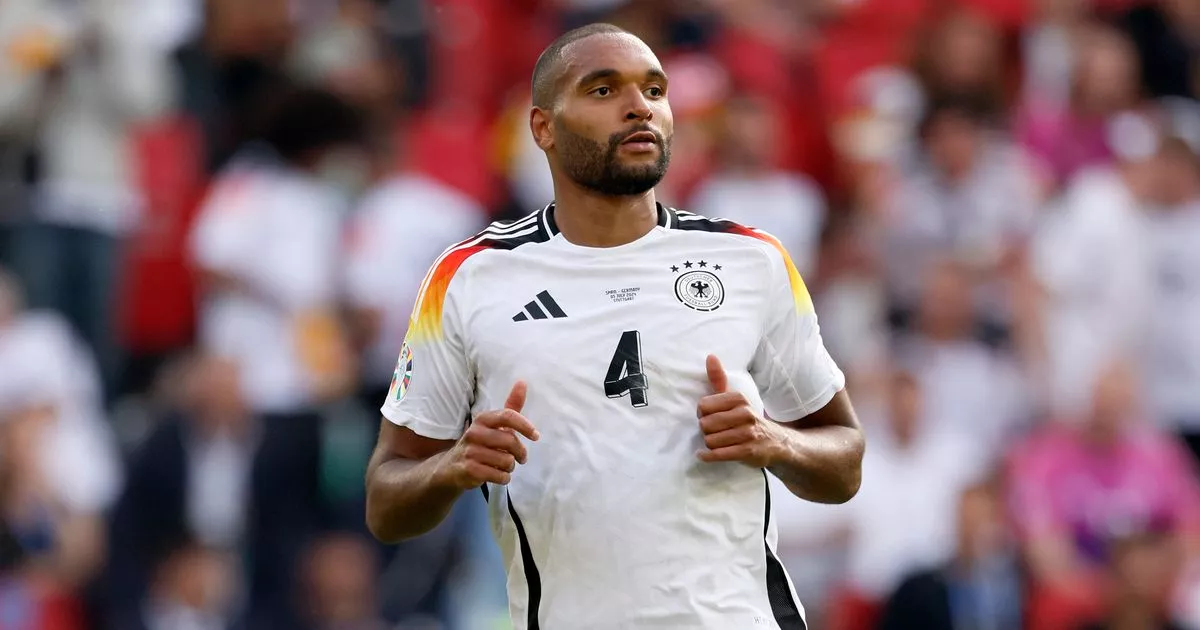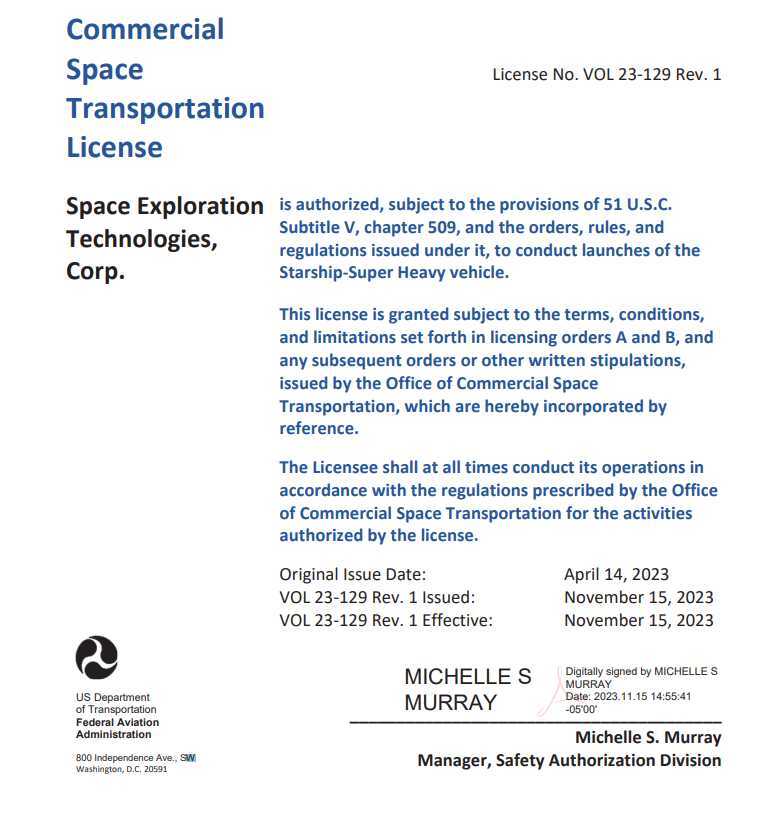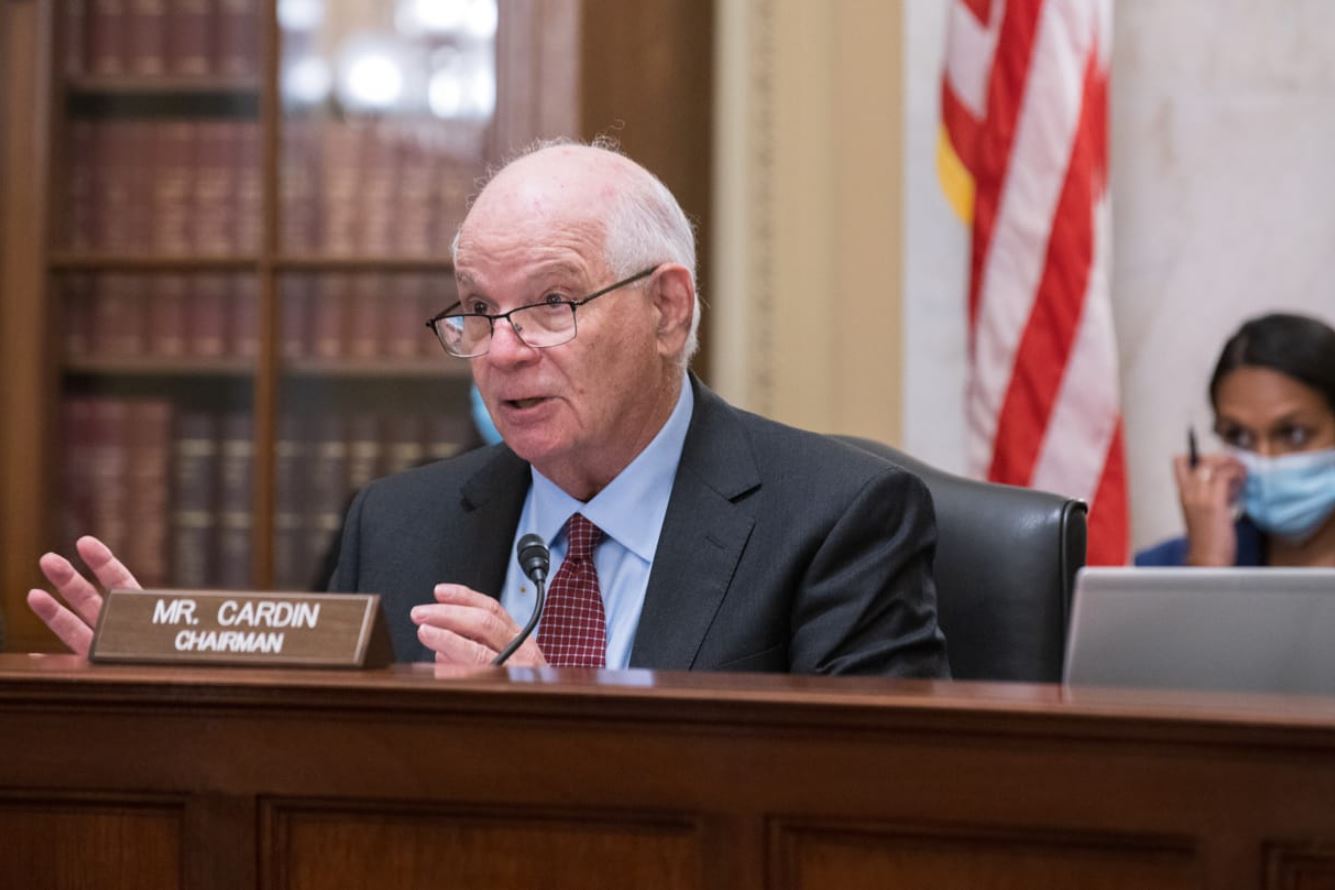Analyzing Putin's War-Oriented Russian Economy

Table of Contents
The Militarization of the Russian Economy
The most striking feature of Putin's economic strategy is the massive increase in military spending. This prioritization has significantly impacted other sectors, diverting resources and expertise away from crucial areas like infrastructure development, social programs, and healthcare.
- Proportion of GDP allocated to military spending: While precise figures remain debated due to the opacity of Russian government reporting, estimates suggest a substantial increase in military spending as a percentage of GDP post-invasion, far exceeding pre-invasion levels. This surge reflects a prioritization of military capabilities over long-term economic growth and social welfare.
- Impact on infrastructure development, social programs, and healthcare: The massive diversion of funds towards the military has led to cuts in vital social programs, resulting in deteriorating infrastructure, a strained healthcare system, and reduced quality of life for many Russian citizens. This creates long-term economic instability.
- The role of state-owned enterprises in supporting military production: State-owned enterprises (SOEs) play a pivotal role in the Russian war economy, contributing significantly to military production and supply chains. This centralized control allows the Kremlin to direct resources and prioritize military needs over market demands.
- Analysis of sanctions and their effect on military procurement: Western sanctions, aimed at crippling Russia's military capabilities, have undeniably had an impact, hindering access to crucial technologies and components. However, Russia has sought to mitigate these effects through various strategies, including parallel imports and forging new partnerships with countries less constrained by sanctions.
The implications of this militarization are profound. The long-term economic consequences of neglecting vital sectors are significant, and the creation of a dual-use economy, blending civilian and military production, raises concerns about transparency and accountability.
Impact of Sanctions on the Russian Economy
International sanctions imposed on Russia following the invasion of Ukraine represent a significant challenge to the country's economic stability. While the effectiveness of these sanctions is a subject of ongoing debate, their impact is undeniable.
- Specific sanctions targeting key sectors: Sanctions have targeted key sectors, including energy, finance, and technology, aiming to restrict Russia's access to global markets and crucial technologies necessary for both its civilian and military sectors.
- Impact on Russia's trade relationships and access to global markets: Sanctions have severely disrupted Russia's trade relationships, limiting its access to international markets and impacting its ability to import essential goods and technologies.
- The role of sanctions in hindering military production and technological advancement: Sanctions have hampered Russia's military production, restricting access to advanced technologies and components necessary for modern weaponry and equipment.
- Russia's strategies to circumvent sanctions: Russia has employed various strategies to mitigate the impact of sanctions, including parallel imports (importing goods indirectly through third-party countries), developing new trade partnerships with countries less bound by sanctions, and accelerating import substitution initiatives.
The resilience of the Russian economy in the face of sanctions is noteworthy. Import substitution and the development of alternative supply chains demonstrate a capacity for adaptation, though at a significant cost to long-term economic growth and technological advancement.
Energy Dependence and its Role in Putin's War Economy
Russia's significant reliance on energy exports plays a crucial role in funding its war effort. Energy revenue forms a substantial portion of the government's budget, providing crucial resources to sustain the military campaign and offset the impact of sanctions.
- Analysis of revenue generated from energy exports: Energy exports, particularly natural gas and oil, generate substantial revenue for the Russian state, providing a significant source of funding for the war effort. Fluctuations in global energy prices directly influence the Russian budget.
- The impact of energy price fluctuations on the Russian economy: While high energy prices have temporarily bolstered Russian revenues, this dependence creates vulnerability. Price volatility and reduced demand due to diversification efforts by importing countries pose a significant threat.
- European Union's efforts to reduce dependence on Russian energy: The European Union has actively pursued strategies to reduce its reliance on Russian energy, aiming to diminish Russia's leverage and weaken its war economy. This involves diversifying energy sources and investing in renewable energy.
- The role of energy as a geopolitical weapon: Russia has utilized its energy resources as a geopolitical weapon, leveraging its control over energy supplies to exert influence over other countries. This strategy has been particularly evident in its interactions with European nations.
The future of the Russian energy sector remains uncertain. Reduced demand, diversification efforts by importing countries, and the potential for further sanctions pose significant challenges, potentially impacting the long-term sustainability of Putin's war economy.
The Role of State Control and Oligarchs in the War Economy
The Russian economy is characterized by a high degree of state control, with the Kremlin wielding significant influence over economic activity. The role of oligarchs, wealthy individuals with close ties to the government, is also crucial in understanding the dynamics of the war economy.
- The concentration of economic power in the hands of the state and a select few: Economic power is highly concentrated in the hands of the state and a relatively small number of oligarchs, limiting competition and hindering the development of a truly market-based economy.
- The role of state-owned enterprises in supporting the military-industrial complex: SOEs play a critical role in supporting the military-industrial complex, providing essential goods and services, and facilitating the allocation of resources towards military objectives.
- The impact of sanctions on oligarchs and their assets: Sanctions have targeted oligarchs and their assets, aiming to weaken their influence and exert pressure on the Russian government. The effectiveness of these measures remains a subject of ongoing debate.
- The challenges of measuring the true extent of state control: The opaque nature of the Russian economy makes it challenging to accurately measure the extent of state control and the true impact of sanctions.
Long-term economic reform and diversification are crucial for Russia's future economic stability. However, the entrenched nature of state control and the influence of oligarchs pose significant obstacles to achieving meaningful change.
Conclusion
Putin's war-oriented Russian economy is a complex and intertwined system. Military spending's dominance, the impact of international sanctions, energy dependence, and the centralized nature of state control are all interconnected factors shaping Russia's economic trajectory. The challenges facing the Russian economy are substantial and uncertain. The long-term consequences of this war-focused strategy remain to be seen, but the current trajectory suggests considerable economic and social costs. Continued research and analysis of Putin's war-oriented Russian economy are vital for understanding the ongoing geopolitical crisis and its global implications. Further reading on topics such as the impact of sanctions on the Russian financial system, Russia's efforts at economic diversification, and the long-term outlook for the Russian economy will provide a more complete picture.

Featured Posts
-
 Jonathan Tah Transfer News And Implications For Manchester United
May 29, 2025
Jonathan Tah Transfer News And Implications For Manchester United
May 29, 2025 -
 January 6th Conspiracy Theories Ray Epps Defamation Lawsuit Against Fox News
May 29, 2025
January 6th Conspiracy Theories Ray Epps Defamation Lawsuit Against Fox News
May 29, 2025 -
 Space X Starship Launch Faa Issues Flight Restrictions
May 29, 2025
Space X Starship Launch Faa Issues Flight Restrictions
May 29, 2025 -
 Man Utd In For Dominant Free Agent Latest Transfer News
May 29, 2025
Man Utd In For Dominant Free Agent Latest Transfer News
May 29, 2025 -
 Ipa Apozimiosi 5 Ekatommyrion Dolarion Stin Oikogeneia T Hymatos Kapitolioy
May 29, 2025
Ipa Apozimiosi 5 Ekatommyrion Dolarion Stin Oikogeneia T Hymatos Kapitolioy
May 29, 2025
